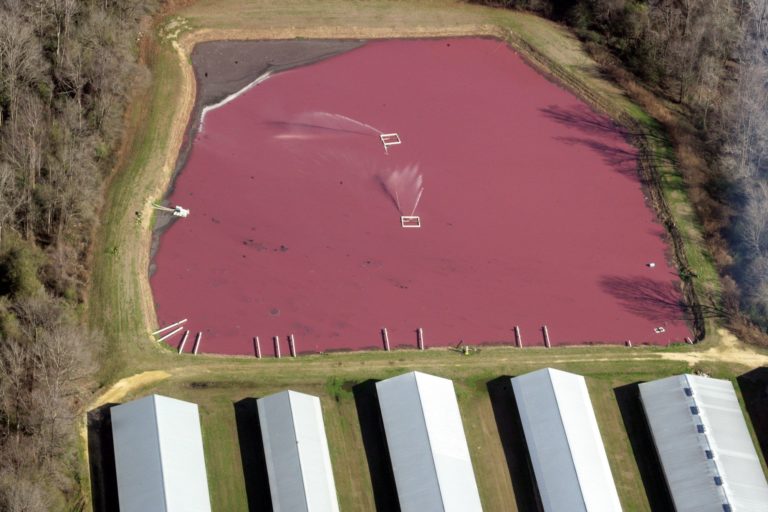North Carolina Riverkeepers Respond to Swine Waste Management General Permit
By: Waterkeeper Alliance

North Carolina’s Department of Environmental Quality released the state’s Swine Waste Management General Permit today, which governs disposal of the nearly 9.5 billion gallons of hog waste generated each year at the state’s industrial swine operations.
Waterkeeper Alliance, Lumber Riverkeeper, Cape Fear Riverkeeper, and Lower Neuse Riverkeeper released the following statements:
“The additional transparency and monitoring in this permit are an important and long overdue step forward,” said Will Hendrick, staff attorney at Waterkeeper Alliance and manager of the North Carolina Pure Farms Pure Waters campaign. “However, the revised permit represents incremental change, but the system needs to be fundamentally changed. An expert commission determined more than 20 years ago that the lagoon and sprayfield system was outdated. The need for change has grown dramatically since, as we’ve learned more about how this waste management system threatens North Carolina communities and our environment, especially in light of increasingly frequent and severe storms..”
“The improvements in the General Permit governing swine waste highlight the state’s nearly complete lack of oversight over poultry waste,” said Jefferson Currie II, Lumber Riverkeeper. “North Carolina is now home, not only to roughly 9 million hogs, but also to crowded industrial poultry operations housing 515.3 million birds, which produce five million tons of waste annually. Yet the state is doing nothing to mitigate the cumulative environmental and health effects of all that waste. The state spent $12.6 million composting drowned birds after Hurricane Florence. To prevent further disasters, new operations in the 100-year floodplain should be banned, but in my watershed, the industry is clearing trees for another industrial poultry operation in the floodplain. We have a permit governing swine waste management, we’re in dire need of more oversight of our poultry industry as well.”
“While the General Permit includes some welcome steps forward, it is silent on the issue of biogas,” said Kemp Burdette, Cape Fear Riverkeeper. “The industry’s biogas plan increasingly looks like a way for it to perpetuate its outdated system of giant open cesspools and sprayfields. It seems to be planning to dig new cesspools and call them ‘in-ground anaerobic digesters.’ A hole full of pig feces and urine is still a hole full of pig feces and urine, no matter what you call it. The state needs to act to prevent the continuation of this same dangerous, polluting, system under a new name.”
“The General Permit is glaringly devoid of concerns for environmental justice,” said Katy Langley Hunt, Lower Neuse Riverkeeper. “The EPA expressed concern in 2017 that these operations have a disparate impact on communities of color. We know the communities most affected by this industry breathe air laden with toxic emissions from industrial hog operations, suffer with well water tainted by nitrates from the operations, and live shorter lives. North Carolina’s DEQ is able to deny permit renewals based on that disparate impact, yet it did not. Instead, it’s allowing a blatantly unfair and dangerous industry to manage waste in the exact same way, in the exact same places that it always has, unfairly and illegally extracting a disproportionate cost from communities of color.”